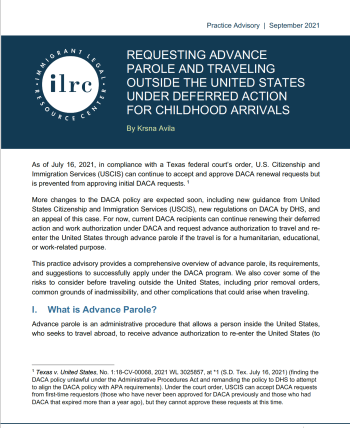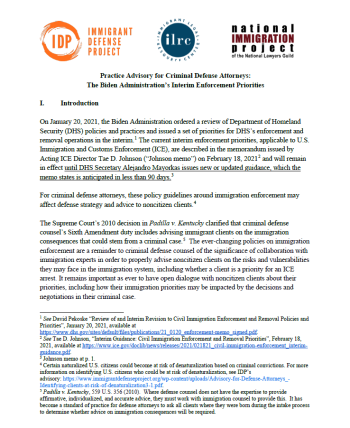
This practice advisory from the ILRC, NIPNLG, and IDP advises criminal defense attorneys on new immigration enforcement policies and how to use the new guidance to defend clients in criminal proceedings.
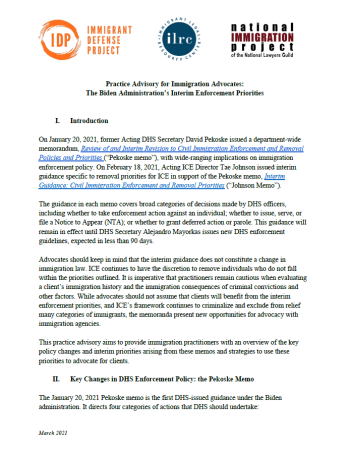
ICE enforcement policies have changed under the Biden administration, and opened new opportunities to defend your clients from arrest, detention, and deportation. This practice advisory from the ILRC, NIPNLG, and IDP provides immigration practitioners with an overview of the interim enforcement priorities and other key policy changes described in recent DHS and ICE memos, and discusses strategies to use these priorities to advocate for prosecutorial discretion.
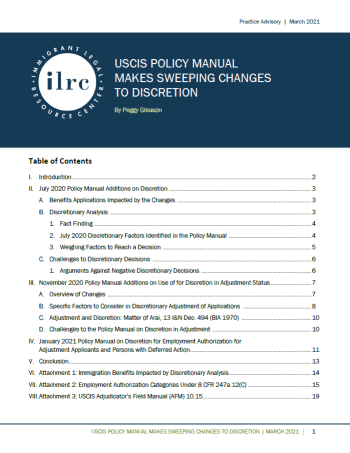
In 2020 and 2021, USCIS changed its interpretation of discretion in adjudication of immigration benefits in three separate releases of policy manual guidance.[i] These chapters add voluminous positive and negative discretionary factors that adjudicators are instructed to analyze in more than a dozen types of immigration benefits, including many categories of employment authorization, adjustment to permanent residence, temporary protected status and change of status applications.
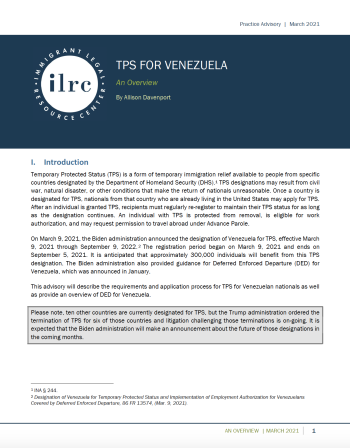
The Biden administration announced the designation of Venezuela for TPS, effective March 9, 2021 through September 9, 2022. TPS provides protection from removal, work authorization, and the option to request permission to travel abroad. The 180-day registration period is currently open through September 5, 2021. This advisory provides an overview of the requirements and application process for TPS for Venezuela. It also includes a brief summary of Deferred Enforced Departure (DED) for Venezuela which is also currently in effect through July 20, 2022.
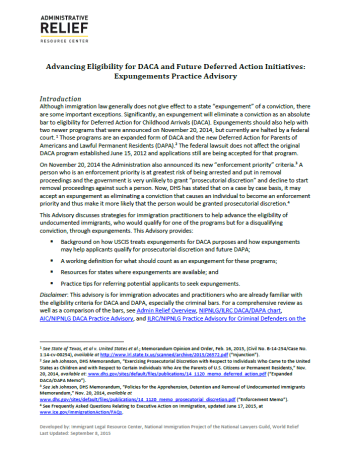
Certain criminal convictions are bars to eligibility for DACA. However, if these convictions can be “expunged,” they will cease to be an absolute bar. Here, an “expungement” refers to any legal process where a criminal court can withdraw, erase, seal, or otherwise eliminate a conviction under a state statute, based on the fact that the person completed probation or other requirements, or for humanitarian reasons. Note that while DACA government materials call this an “expungement,” different state laws may use different terms for this kind of rehabilitative relief. An expungement is not given effect for most immigration purposes – but it does work for DACA. For example, a misdemeanor conviction for driving under the influence is a bar to applying for DACA as a “significant misdemeanor.” If the person has the conviction “expunged,” however, they are not barred from applying, and if they have enough positive equities they may well be granted DACA.
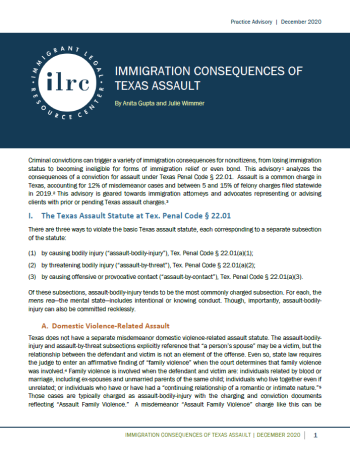
This practice advisory explains the various immigration consequences of a conviction for Assault under Texas Penal Code § 22.01 and provides tips for mitigating such consequences in criminal proceedings. This August 2022 update includes analysis of the Texas Assault statute in light of the Supreme Court’s decision in Borden v. United States. The Texas Assault statute is complex and includes several subsections, so we have included a chart in the appendix describing the potential immigration consequences for each subsection of the Texas Assault statute.
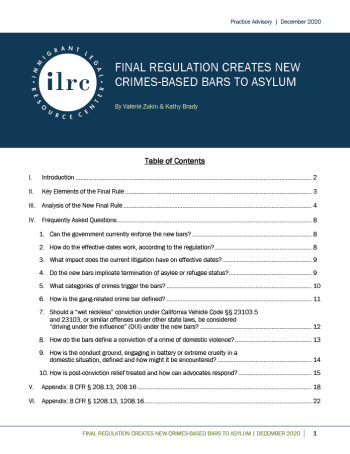
In October 2020, DHS and DOJ published a final regulation that sets out wide-ranging and draconian bars to applying for, and bases to terminate a grant of, asylum. For example, the bars include conviction of any felony, any controlled substance offense, a single DUI with injury, a DUI with a DUI prior (regardless of injury), and domestic violence bars based on the underlying conduct.

The COVID-19 pandemic has created a myriad of challenges for immigration legal service providers. While some research and best practices for providing remote legal services have been developed, serving immigrant survivors of domestic violence requires a unique set of considerations. This advisory describes the findings of a small study exploring how service delivery models have been adapted for this vulnerable population during the pandemic. The advisory outlines the concerns, strategies, and lessons learned from the field in order to continue to serve immigrant survivors throughout the pandemic and beyond.
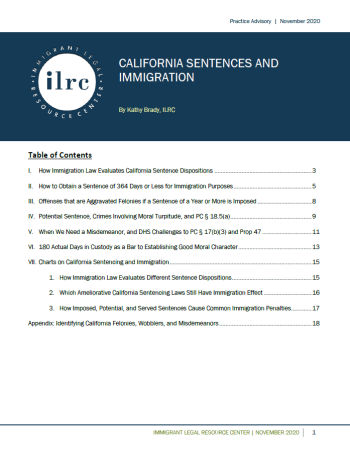
In some cases, the amount of an imposed, potential, or served criminal sentence can determine the outcome of the immigration case. The law governing how state sentencing dispositions affect immigration penalties is fast-changing. The good news is that an informed defender often can structure a sentence that gives the prosecution what they require, while avoiding immigration penalties. An informed immigration advocate wants to be able to explain this to an immigration judge or adjudicator to win the case.
